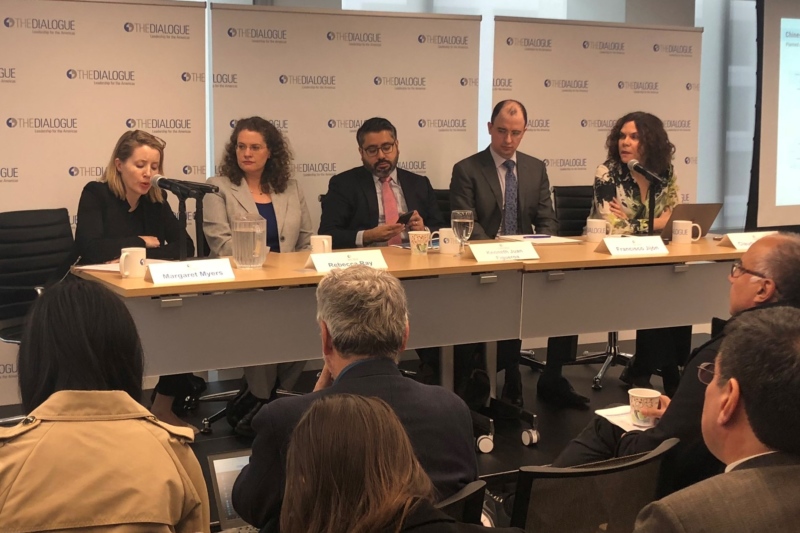The Politics Of Disaster Relief
After a 7.0 magnitude earthquake struck Haiti, the aftershock reached China in ways that few anticipated.The earthquake forced Chinese leaders to navigate the tricky politics of disaster relief.
On November 14, the Inter-American Dialogue convened a panel of experts to discuss current trends and prospects for further Chinese infrastructure development in Latin America and the Caribbean. The event was moderated by Margaret Myers, director of the Inter-American Dialogue’s Asia & Latin America Program.
As Latin American countries join the China-led Belt and Road Initiative, the panelists, including Boston University’s Rebecca Ray, Foley Hoag’s Kenneth Figueroa, White & Case’s Francisco Jijón, and O Estado de S.Paulo’s former correspondent Claudia Trevisan, acknowledged the need to modify legal frameworks and safeguards so as to improve the outcomes and perceptions of Chinese infrastructure development overseas.
Looking back on over a decade of Chinese infrastructure financing in the Latin America, panelists agreed that Chinese investment can mean great things for the region as long as projects adhere to relatively high planning, construction, and procurement standards. However, many also noted that the general lack of conditions attached to Chinese loans make them especially appealing to some governments in the region. As Boston University's Rebecca Ray stated, “[China] still has not developed the regulatory framework that their Western peers... have learned by trial and error to protect themselves from environmental, social, and political risks.” Kenneth Figueroa indicated that Chinese investment “is often perceived as not having generally accepted standards, both environmental standards and social standards." That, he added, is one of the reasons why Chinese financing has been so attractive of late.
Despite continued demand for Chinese infrastructure investment and finance in Latin America, China's relative lack of dispute resolution mechanisms has generated uncertainty for Chinese firms, their partners, and the communities in which they are operating. In Ecuador and Peru, limited prior consultation and insufficient safeguards have led to higher rates of deforestation and some bisecting of indigenous communities, panelists noted. Rebecca Ray suggested that Chinese entities interface more extensively with local communities and use international accepted frameworks to achieve best outcomes.
Some countries have expressed considerable concern about the role of state-owned enterprises in infrastructure development across the region. Brazil’s President-elect Jair Bolsonaro has criticized Chinese state investment, expressing concern about the motivations of these deals. But as Claudia Trevisan indicated, Chinese companies are often the only ones to show interest in projects, "or the only ones who have capital” to invest in infrastructure.
Although Chinese infrastructure development faces challenges, investment frameworks and agreements will play an important role in building stronger relationships in the coming years. As tension between China and the U.S. builds in Latin America, White & Case’s Francisco Jijón suggested that there might be opportunities for “Latin American states to play opposing sides against each other,” creating a new flexibility in investment and trade-related deal-making.
After a 7.0 magnitude earthquake struck Haiti, the aftershock reached China in ways that few anticipated.The earthquake forced Chinese leaders to navigate the tricky politics of disaster relief.
What should we expect from a newly powerful Brazil? Does the country have the capacity and leadership to be a central actor in addressing critical global and regional problems?
President Lula da Silva triumphantly announced that he and his Turkish counterpart had persuaded Iran to shift a major part of its uranium enrichment program overseas—an objective that had previously eluded the US and other world powers. Washington, however, was not applauding.
 Ricardo Barrios / The Inter-American Dialogue
Ricardo Barrios / The Inter-American Dialogue